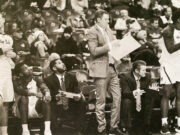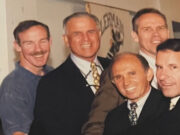TO: questions@psychedonline.org
FROM: XXXXXX@msn.com
SUBJECT: Depression and Exercise
DATE: Mon, 10 Nov 2003
Dear Psyched:
In the past I was a professional athlete. Today, I am a lawyer who is in trouble. I’ve been let go by a firm without compensation. They did it without any compensation, even though I had a contract that noted it couldn’t be done. So, I filed suit and they have countered with a suit against me. The stress is unbelievable. Participating in sports used to be great release and joy. After a number of weeks of not exercising, I tried to take a run. Usually, I could do 5 miles without blinking. One mile into my run, I began to think of the different aspects of my legal and financial situation and came to a dead halt. I couldn’t run any further. Every time I try to exercise, the same thing happens. I’m about to give up exercising. Can you be of any help?
TO: XXXXXX@msn.com
FROM: questions@psychedonline.org
SUBJECT: RE: Depression and Exercise
DATE: Wed, 12 Nov 2003
Dear Troubled Athlete:
Repetitive exercise can leave a lot of space to think about almost anything. Unwanted thoughts can flood the area. Negative feelings (anxiety, fear, depression, guilt, shame, etc.) have a way of shutting down the motor system. These feelings can act like paralytic agents. Sometimes the body stops moving before the troubled athlete even knows it has occurred. You can’t just not think. Even when we are sleeping we are thinking. Unless, you have energizing thoughts, images, emotions to fuel the mental system, breakdowns surface. Develop these fuels before you go for a run again. Another suggestion is to make sounds when you are running – energizing sounds – like rahhhhhh. Make these sounds over and over again. Maybe trying a sport that requires more mental attention (i.e., tennis) could keep your mind occupied.
Paul Schienberg, Ph.D.
Editor/Publisher











